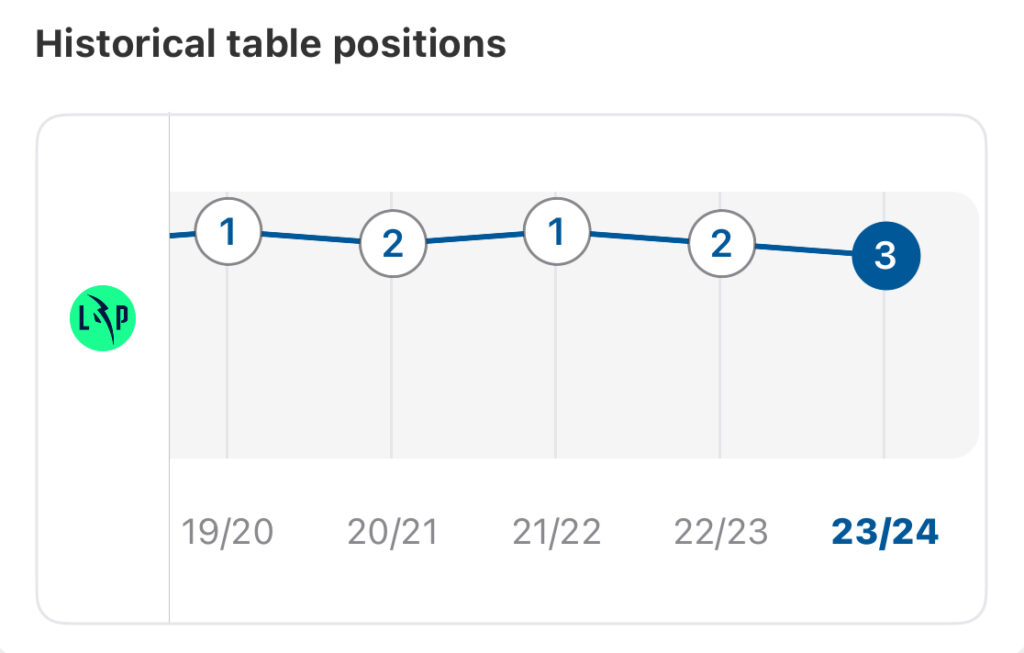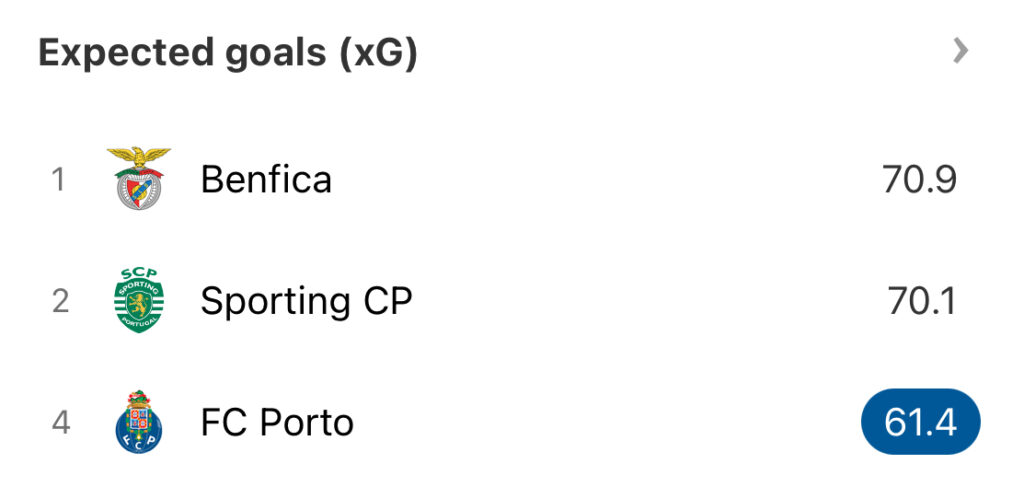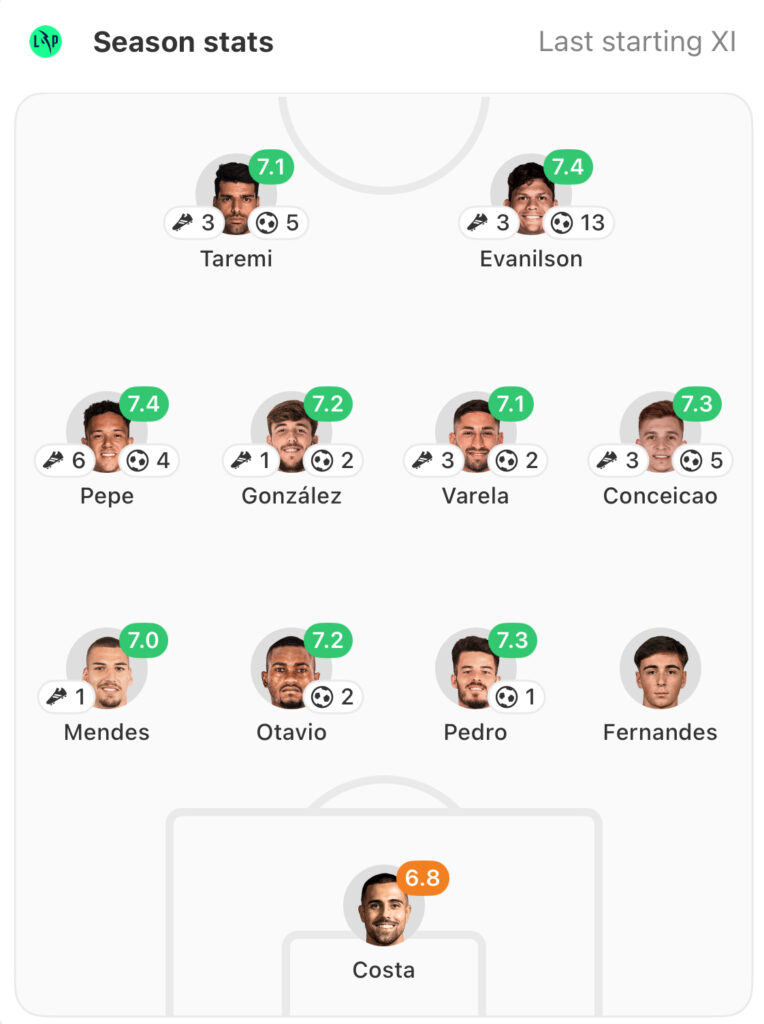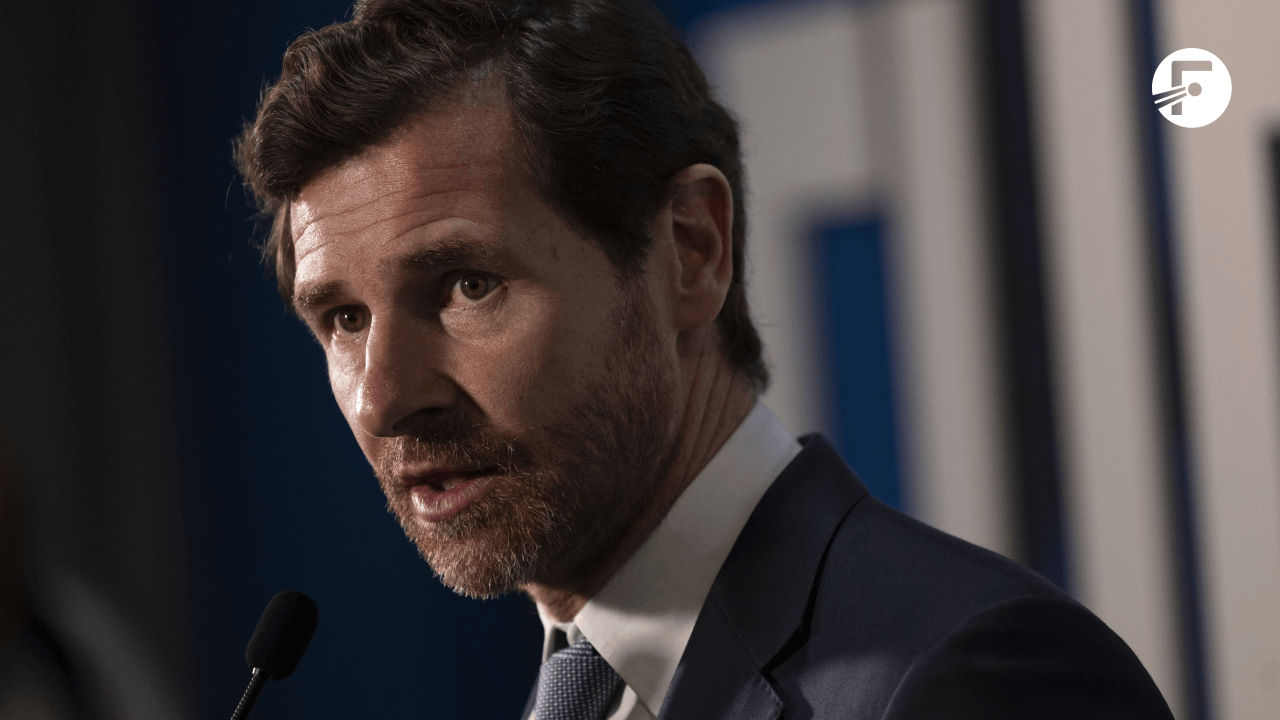It remains to be seen whether or not FC Porto will finish a season trophyless for the first time since 2016/17, with the Dragons set to face off against Sporting on May 26 in the final of the Taça de Portugal. However, one thing’s for sure: for the first time in nearly a half-century, there’s a new sheriff in town.
By Zach Lowy
After 42 years at the helm, Jorge Nuno Pinto da Costa’s reign has come to an end following the results of the Porto presidential election on April 27, which saw André Villas-Boas come away with over 80% of the vote to oust the 86-year-old. But just what exactly does this mean for the present and future of the Portuguese giants? Let’s dive deeper.
A change has come
After winning the 2021/22 Primeira Liga title with a Portuguese league record 91 points as well as the Taça de Portugal, FC Porto would regress to a second-place finish in 2022/23, missing out on the title to Benfica on the final day of the campaign and the chance to pick up three domestic trophies. This season, however, they have watched from the sidelines as Benfica and Sporting dueled it out for the championship – the latter securing the league title on Sunday following Benfica’s 2-0 loss to Famalicão. The Dragons sit 10 points behind Benfica, one point above Braga and six above Vitória, and they are in grave danger of missing out on a top-three finish for the first time in 48 years.

Sérgio Conceição’s side will host crosstown rivals Boavista on Sunday in the Dérbi da Invicta before traveling to Braga on the final day, and if they can beat Sporting in the Cup Final, they will go level with Benfica as the most successful team in Portugal with 85 trophies. Since taking charge in 2017, Conceição has put an end to Benfica’s run of four league titles in a row and won 10 trophies – including three league championships – but it seems his tenure could well be coming to an end sooner rather than later.
Is Conceição on his way out?
As the presidential elections edged closer, Pinto da Costa pulled two rabbits out of his hat. First, he announced the permanent acquisition of Sérgio’s 21-year-old son Francisco. Having sold him to Ajax for €5 million in 2022, Porto brought him back on loan last summer before signing him on a contract through 2029 for a fee of €10 million. Porto waited a month to announce the deal, and as a kicker, they even gave Francisco a 20% resale clause. If Porto sell Francisco for €60 million – the full value of his release clause – then Francisco would be entitled to €12 million of the transfer fee.
Secondly, they announced the renewal of Sérgio Conceição’s contract (which was set to expire in the summer) through to 2028, with one catch: if Pinto da Costa lost the election, the contract could be mutually voided, allowing him to leave for free. Both strategies failed, a coy admission from the club’s fanbase that, whilst Conceição will go down as one of the most successful managers in Porto’s history, his tactics have gone stale after seven years at the helm.
Since the start of 2024, Porto have drawn to Sporting, Boavista, Rio Ave, Gil Vicente and Famalicão, whilst they’ve also lost to Vitória, Estoril and Arouca, dropping points in 12 of their 32 matches. Indeed, Porto’s total goals scored (60) is inferior to Sporting’s goal differential (+63), and after seven straight top-two finishes, the Dragons are guaranteed to finish, at best, in third place. However, if Villas-Boas is to turn the tide at Porto, it’s clear that changes are needed not only at the manager position, but the sporting director role as well.

Porto under fire from FFP
Over the past decade, Porto have found themselves under constant scrutiny from Financial Fair Play (FFP) due to a lackluster business strategy that has seen them lose various starters like Yacine Brahimi, Chancel Mbemba and Héctor Herrera on free transfers, with Mehdi Taremi set to become the latest as a move to Inter edges closer. They were recently found in violation of FFP rules and will pay a fine of €2m in order to avoid incurring a ban from European football, and it seems that another player exodus could be on the cards.
Whilst Porto have had quite a few big-money sales in recent years, they’ve also had their fair share of expensive signings that haven’t quite panned out. In the summer of 2022, Porto splurged a combined €31.6 million on Gabriel Verón, Stephen Eustáquio, Samuel Portugal, André Franco and Marko Grujić, whilst they also shelled out a club-record €20 million plus €2.5 million in add-ons on Braga’s David Carmo. The following summer, they spent €35.44m on Iván Jaime, Nico González, Alan Varela, and Fran Navarro and added Jorge Sánchez and Francisco Conceição on loan from Ajax, whilst they lost their indispensable playmaker Otávio, who joined Al-Nassr for €60 million.
Otávio’s departure has deprived Porto of much-needed creativity and unpredictability in the final third, and nobody has managed to fill the void. From that list, there have been far more flops than successes – Carmo, Navarro, and Verón departed on loan in January, whilst Portugal, Grujić and Eustáquio are bench players. As for Sánchez, Jaime and Franco, they were recently forced to train apart from the first-team squad alongside Toni Martínez after running afoul of Conceição.

Can Villas-Boas unite Porto?
“Football is subject to a lot of variables, and when things go wrong, normally it’s when the top disappears.” It’s been nearly three years since I spoke to André Villas-Boas in Lisbon, and it’s fair to say that this statement of his has stood the test of time. Villas-Boas’ sole season in charge of Porto would see the club win the Primeira Liga, the Supertaça, and the UEFA Europa League, and 13 years later, he returns to a Porto that finds itself in crisis both on and off the pitch.
In November, the club’s general assembly broke into chaos after members of the Super Dragões, Porto’s main ultra group, reportedly attacked those who spoke out against the Pinto da Costa reign. Over the past 18 months, Villas-Boas has faced threats, harassment, and vandalism, but he hasn’t let that stop him from pursuing the presidency. All of this did, however, prevent him from traveling to the Estádio do Dragão on election night to celebrate his victory over fears for his safety. The 46-year-old Porto native has already led his boyhood club to a treble and ended Pinto da Costa’s dynasty, but now, he faces a new challenge: restoring pride and unity to a Porto side that finds itself teetering on the brink.
(Images from IMAGO)
You can follow every Porto game with FotMob — featuring deep stats coverage, xG, and player ratings. Download the free app here.
